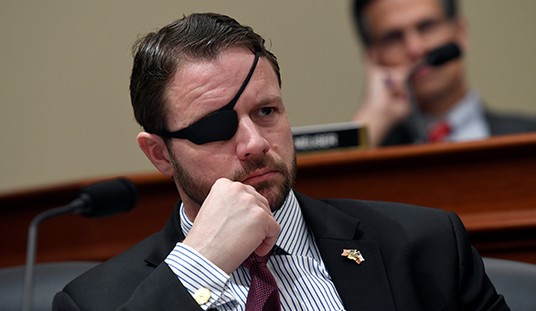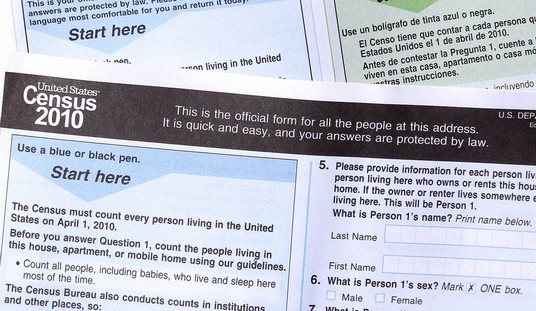The Supreme Court recently faced a challenge to the constitutionality of the Voting Rights Act of 1965. A Texas municipality requested that it be allowed to be relieved from the onerous and expensive preclearance provisions of the Act. The Supreme Court avoided a ruling on the constitutional question but did allow the municipality to “bail out “ of the preclearance requirements.
Under those requirements, a number of states and voting districts (mostly in the South, but also including parts of seven non-Southern states such as Manhattan, Brooklyn, and the Bronx in New York) must obtain preclearance from the Department of Justice to alter any election provisions.
An even more recent development in the small town of Kinston, North Carolina, shows how the onerous preclearance procedures give inordinate power to the Department of Justice bureaucrats, deprive voters of rational choices, and bring us nearer to the day when the Supreme Court may yet be forced to deal head-on with the constitutionality of this provision of the Voting Rights Act.
The Voting Rights Act was designed to deal with years of voter intimidation and disenfranchisement, and it has proved a very successful tool in the civil rights arsenal. Certainly the conduct it was designed to remedy has long ceased and the preclearance provisions of the Act place an intolerable administrative and budgetary constraint on those covered by the law.
Nevertheless, it remains such a sacred cow that in 2008 the Senate extended the Act’s life by another 25 years by a 98-0 vote. At the time, Jesse Jackson (for whom everything is always Selma) said, “So far, the Department of Justice has favored states’ rights over federal enforcement. We see a pattern.”
Now, states and municipalities are compelled to waste a lot of time and money persuading unelected bureaucrats to let the voters decide the minutia of their balloting procedures. This is because no one had the courage to pull the plug on the Voting Rights Act, which clearly had little reason to be extended for another twenty-five years. Acting Assistant Attorney Loretta King made a ruling that has turned the law itself into what Dickens’ Mr. Bumble would call “an ass.” Indeed, given the terms of the ruling, perhaps a more up-to-date Mr. Bumble would say the law is a jackass.
Most of North Carolina’s local municipalities hold their elections on a nonpartisan basis. Five municipalities in all of North Carolina, including Kinston, hold partisan local elections. Non-partisan balloting saves money because there is no need for primary elections. It also prevents the need for petition drives to get candidates on the primary ballots.
Kinston, a town of 23,000 people, two-thirds of whom are black, was an exception to the rule in North Carolina. It wanted to change its election rules to conform to the prevailing state-wide method of nonpartisan local elections. The town is overwhelmingly Democratic. Indeed, no one can even remember a Republican holding office in Kinston since Reconstruction. The townspeople voted almost 2-1 to switch to nonpartisan elections, and the vote carried seven of the town’s nine majority-black precincts and both of its white- majority precincts.
Acting Assistant Attorney General King already made headlines in July when she inexplicably dropped a case charging the Black Panthers with voter intimidation — a case the Justice Department had already won. Why did she decide Kinston had to scratch its decision to follow prevailing state custom and run nonpartisan local elections? She said the city had failed to meet its burden of proof that the change “has neither a discriminatory purpose nor a discriminatory effect.”
And here’s the reason:
Removing the partisan cue in municipal elections will, in all likelihood, eliminate the single factor that allows black candidates to be elected to office. In Kinston elections, voters base their choice more on the race of a candidate than his or her political affiliation, and without either the appeal to party loyalty or the ability to vote a straight ticket, the limited support from white voters for a black Democratic candidate will diminish even more. And given that the city’s electorate is overwhelmingly Democratic, while the motivating factor for this change may be partisan, the effect will be strictly racial.
The letter cited voter statistics as of Oct. 31, 2008: “14,799 registered voters, of whom 9,996 (64.6%) are African-American.”
Since the town is so overwhelmingly black, there’s only one way to read this letter. It is a given that there is low black turnout for municipal elections. It is King’s perception that unless there is an appeal to party loyalty and the ease of straight-ticket voting, whites won’t vote for black candidates, and all black voters prefer Democrats. Thus, the Voting Right Act requires that the elections remain partisan affairs so blacks can win.
It’s Ms. King’s heavy thumb on the scale, not the constitution nor the law, which mandates that the town must forgo nonpartisan elections to compensate for the effect of low black election turnout on Democratic prospects for winning elections.
King seems to be alone in the view that the purported change has “a discriminatory purpose” or “a discriminatory effect.” William Cooke, president of the local branch of the NAACP, took no position on the matter but was skeptical about the Department of Justice’s involvement, according to the Washington Times.
Abigail Thernstrom is the vice-chair of the U.S. Civil Rights Commission. That body is apparently still awaiting the Justice Department’s response to their discovery request on the Black Panther case dismissal, which many commissioners are critical of. Thernstrom, who has extensive experience with the Voting Rights Act, seemed to find King’s rejection of the town’s planned change in procedure inexplicable, saying:
The Voting Rights Act is supposed to protect against situations when black voters are locked out because of racism. There is no entitlement to elect a candidate they prefer on the assumption that all black voters prefer Democratic candidates.
Given the absurdity of the reason King gave to deny Kinston clearance for the electoral change, one would hope that the town would mount a constitutional challenge. Apparently, it is the only entity under the Act with standing to do so, but it appears the town will not. King, therefore, will have her way for the moment, though one wonders how much longer Attorney General Holder can afford to keep her in this position. She has a penchant for making moves that are not capable of rational explanation except as examples of hyperpartisanship, which diminishes respect for the law and the Justice Department.









Join the conversation as a VIP Member